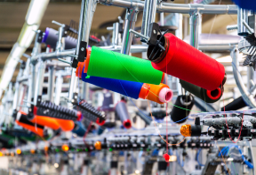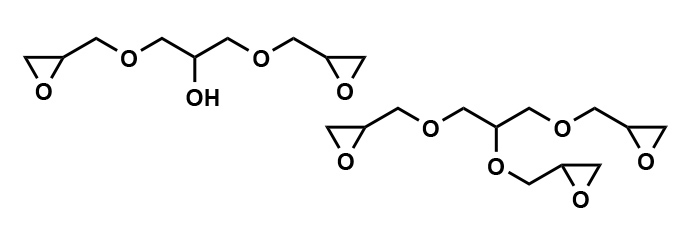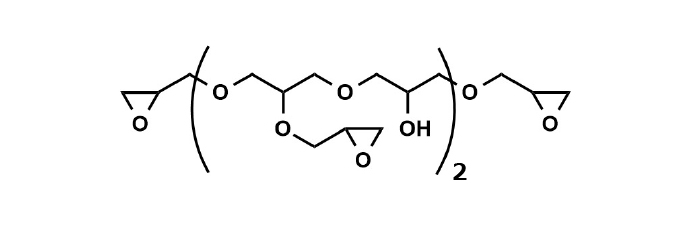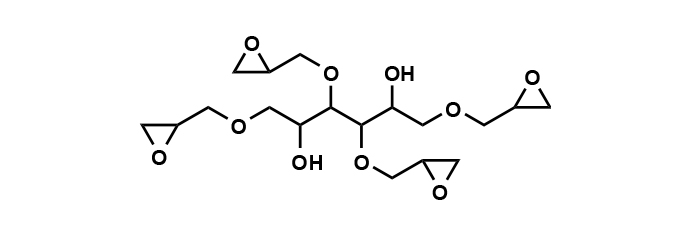Bio-based Epoxy Resin | Guide for Industry Professionals
What is bio-based epoxy resin?
Bio-based epoxy resin is an environmentally friendly epoxy resin that uses bio-based (plant-derived) raw materials. Like conventional epoxy resin, it is reacted with different curing agents and used in various fields, including adhesives, paints, electrical and electronics, civil engineering and construction, and printed wiring boards.
The market is undergoing a change, from epoxy resins that use petroleum-derived (depletable raw materials) to bio-based epoxy resins that use environmentally friendly plant-derived raw materials.
What makes it different from conventional epoxy resin?
The biggest difference between bio-based and conventional epoxy resins is the raw material used for the basic skeleton: petroleum-derived vs. plant-derived.
The process of reacting epoxy resin with different curing agents gives rise to properties such as heat resistance, adhesion, and insulation. Bio-based epoxy resins all have similar characteristics, so it is necessary to choose the structure of the compound depending on the intended use.

Why choose bio-based epoxy?
By making epoxy resin bio-based, we expand the possibilities for selection, as specialized characteristics can be obtained.
There are four main reasons to choose bio-based epoxy resin over conventional epoxy resin.
Reduced carbon footprint
Bio-based epoxy resin contributes to reducing carbon dioxide (CO₂) emissions through photosynthesis of raw material plants.
To begin with, a product's or service's carbon footprint is the amount of greenhouse gases emitted during each process from its production to its disposal, converted into a CO₂ equivalent.

Carbon footprint is an effective way for manufacturing companies to understand the amount of greenhouse gases produced by their products, activities, and services as well as to advocate for reductions.
From October 2023, reporting will be mandatory for companies exporting products to the EU.
Sustainable supply chain
A sustainable supply chain is an approach that emphasizes the sustainable operation of a supply chain by considering environmental, social, and economic aspects at all stages from the production to provision of products and services.
Using plant-based raw materials brings about environmental benefits, reduced CO₂ emissions, recyclability, and supply chain transparency, enabling a sustainable supply chain.

Regulatory compliance
In some countries, environmental regulations restrict the use of epoxy resins that are designated as a material with bisphenol A, which is a common skeleton for conventional epoxy resins, since it is a substance of very high concern due to its endocrine-disrupting effects on the human body and the environment.

As a result, applications that use bisphenols, such as thermal paper and toys, are restricted. Bio-based epoxy resins are able to meet these environmental regulations.
Consumer demand
In recent years, as consumers have become more environmentally conscious and the use of renewable energy has become more widespread, demand for plant-derived and renewable raw materials has also increased.The range of choices for bio-based epoxy resins as an alternative to conventional epoxy resins is expanding with the application of raw materials with improved material properties such as durability and heat resistance.

Industrial applications of bio-based epoxy resins
Glue
Bio-based epoxy resin works as an adhesive on a variety of materials, including wood, metals, and plastics.It offers high adhesion, durability, and chemical resistance, making it more environmentally friendly than conventional epoxy resin.

Paints and coatings
Bio-based epoxy resin can be used in automotive paints, coatings on beverage and food cans, and more.It has excellent adhesion, durability, and weather, chemical, and abrasion resistance.

Compared to conventional paints and coating materials, it has the advantage of being more environmentally friendly and is more likely to contain less volatile organic compounds, so it can be used as a sustainable raw material.
Textiles/Clothing
Bio-based epoxy resin can be used in textiles and clothing in the same way as conventional epoxy resin.It can be used to coat fiber surfaces, bond different types of fibers together, and bolster the strength and waterproofness of fibers.Additionally, the use of bio-based epoxy resin makes it a sustainable raw material, making it more appealing to consumers.

Introduction to GREEN DENACOL
What is GREEN DENACOL?
GREEN DENACOL is a sustainable epoxy compound that is a multifunctional type of DENACOL, which is a polyfunctional epoxy compound with a matrix of sorbitol and glycerin, which has been switched from petroleum-derived (depletable raw materials) to bio-based (plant-derived). It is a crosslinking agent.
You can check the latest product lineup on the website linked below.
Learn More
GREEN DENACOL GEX-313
This product is an aliphatic polyfunctional epoxy compound called glycerol polyglycidyl ether.GEX-313 is a bio-based product with a bio-based content higher than 99%. Although it is a multifunctional type, it has low viscosity, water solubility, and high reactivity, making it an ideal crosslinking agent for water-based paints and adhesives and surface treatment agent for fibers.

SWIPE
| Epoxy equivalent (g/eq.) |
Viscosity (mPa・s) |
BiobasedContent (%) |
Total chlorine content(%) |
Color value (APHA) |
Water solubility(%) | Packaging |
|---|---|---|---|---|---|---|
| 141 | 150 | > 99 | 9 | 10 | 99 | 20kg、220kg |
* "Bio-based content" means the usage rate of biomass raw materials in bio-based products.
GREEN DENACOL GEX-512
This product is an aliphatic polyfunctional epoxy compound called polyglycerol polyglycidyl ether. GEX-512 is a bio-based product with a bio-based content higher than 99%. Because it is multifunctional, water-soluble, and highly reactive, it can be used as a crosslinking agent for water-based paints and adhesives and as a surface treatment agent for fibers.

SWIPE
| Epoxy equivalent (g/eq.) |
Viscosity (mPa・s) |
BiobasedContent (%) |
Total chlorine content(%) |
Color value (APHA) |
Water solubility(%) | Packaging |
|---|---|---|---|---|---|---|
| 168 | 1,300 | > 99 | 6.5 | 40 | 100 | 20kg、220kg |
* "Bio-based content" means the usage rate of biomass raw materials in bio-based products.
GREEN DENACOL GEX-622
This product is an aliphatic polyfunctional epoxy compound called sorbitol polyglycidyl ether. GEX-622 is a bio-based product with a bio-based content higher than 99%. Because it is multifunctional, hydrophobic, and highly reactive, it can be used as a crosslinking agent for paints and adhesives, a surface treatment agent for fibers, and a reactive viscosity modifier.

SWIPE
| Epoxy equivalent (g/eq.) |
Viscosity (mPa・s) |
BiobasedContent (%) |
Total chlorine content(%) |
Color value (Gardner) |
Water solubility(%) | Packaging |
|---|---|---|---|---|---|---|
| 191 | 11,800 | > 99 | 19.4 | 2 | Insoluble | 18kg、200kg |
* "Bio-based content" means the usage rate of biomass raw materials in bio-based products.
Questions about bio-based epoxy resin
What is bio-based epoxy resin made of?
Bio-based epoxy resin is a resin that uses plant-derived raw materials. The raw materials used for our GREEN DENACOL product vary depending on the product number.
For more information, please contact the person in charge.
Is there any difference in quality between GREEN DENACOL and regular DENACOL?
No. There is no difference in grade between regular DENACOL and GREEN DENACOL.
If you would like to know more about our quality standards, please contact the person in charge.
Is it possible to mass produce GREEN DENACOL?
Yes. GREEN DENACOL has a mass production system in place.
If you have decided on the amount you need, please contact the person in charge.

